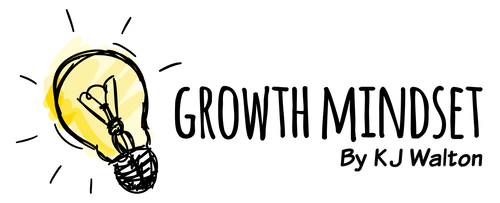I have been listening to 'The Just Bloody Post-it' podcast on which Elizabeth Uviebinene, founder of a new guided journalling app talked about both courage and lonliness in which she said something that stopped me in my tracks and made me think.
In talking about lonliness, she said that lonliness is not just about proximity to other people(she was talking about feeling lonely at the age of ten even though she was in a house full of siblings) it is about being connected to them authentically. It's about feeling like you are understood.
The reason that it caught my attention is because it made me realise that one of the reasons for my passion in the area of developing children's Mindsets is that the work I do in the classroom in making Mindset tendencies part of the weekly conversation is about opening up a safe space that allows children to feel like it is OK (and not only OK but expected) to learn in a way that isn't perfect and is messy because that's where the growth is.
It is a mechanism and a conversation that aims to bind us together as a class and encourage us to get vulnerable and authentic with each other because THAT'S HOW WE LEARN AND GROW. It also sets up for the future, habits that will support adults to be more vulnerable and authentic with each other. This is a huge conversation in the adult arena at the moment with adults struggling to make themselves vulnerable and authentic. We know these things contribute to our value, our mental health and our ability to connect to each other so it is not just important skills to be honing for learning in the classroom but for learning in life. These are life skills that work on so many levels.
The success illustration depicted alongside this post helps us to think about HOW learning looks - a line can be a powerful thing. That illustration helps us to consider authentically what learning and success look and feel like but it is often the authenticity of it that we are shielded from. Many of us would like to think that the clean straight line is how it is but it isn't. The sooner that children see and start to appreciate this the better because they can begin to navigate the feelings that inevitably come with the struggle of learning. I believe that a big part of resilience is about both understanding and being OK with the mess and the authentic. When we are all part of that journey together, it stops 'finding learning hard' being a reason to feel alone.
Coming back to lonliness - from my work as a teacher, I can 'feel' when children are experiencing lonliness, even though they are in a classroom full of other children. It is a feeling of not being able to do something that often causes that lonely feeling. When you feel like you are being left behind because others understand something and you don't, it is very possible to see how a feeling of lonliness can develop - even if it is just in that one moment.
I once conducted a pupil voice in school where I interviewed children about various things to do with learning and how they viewed learning. There was a recurring theme that came through very obviously to me. There were so many children that told me they were worried about what other people thought of them. It seemed to me that the children felt they were being 'JUDGED' by others and the fear of what that judgement might mean for them was immense - so immense as to guide their behaviour. The judgement they seemed to worry about was related to them being wrong - and as we know, being wrong is an important part of learning. They didn't feel connected to their peers, they felt like they would be judged negatively for getting something 'wrong'.
Mindset is something that I regularly refer to in the classroom because it aims to connect us as a class; it is is a binding agent, a means of building a culture that connects us. It is an obvious value system in the classroom; in the words of John Hattie, it makes the invisible visible. It hones in on the REALNESS of learning and uncovers the messiness of learning and in doing so , children can begin to feel a sense of 'permission' being given to 'do the messiness of learning'. My hope is that this goes some way too eradicating the feeling of lonliness and judgement because we are all trying new things and getting it wrong along the way and celebrating the learning that comes from that. What the judgement should be (if at all) is whether you are growing yourself as a learner.
I think a problem we have in education is that, whilst we are all trying to naturally build Growth Mindsets because, as educators, we know that the skills in this area can support the development of learning - however, the way the system is set up means that the overall goal appears to children to be the achievement of the perfect end result. There may not be messages to go alongside this that express that often, the perfect end result isn't what comes but that's OK as it gives us data to act on. We must be really clear that the perfect end result is not always what we need in order to grow because if we are always trying to achieve that, we are in danger of sticking to what we know and not growing because we are fearful of not achieving the perfect end result.
It's all about the YET.

